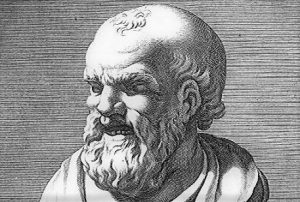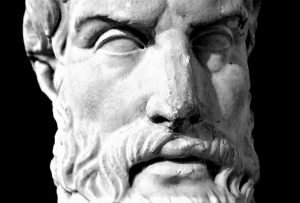Nihilism
Nihilism is the belief that all values are unfounded and that nothing can be known or communicated. It is often associated with extreme pessimism and radical skepticism that condemns existence. A true nihilist would not believe in anything, has no loyalties, and has no other purpose than perhaps an impulse to destroy. It is the negation of any kind of religious, social or political principle. Nihilism is one of the few branches of philosophy that allows the possibility of absolute nothingness, it does this through three assumptions: that there is a finite number of objects in the world; that each of these objects is contingent and that the objects are independent, then the "argument of subtraction" arises which tells us that each object can be subtracted from the world, one by one, until it becomes nothing.
What is nihilism?
It is the philosophical position that claims that being, especially past and present human existence, lacks objective meaning, purpose, truth or essential value. It asserts that there is no reasonable proof of the existence of a superior creator, that there is no true morality, and that objective secular ethics is impossible.
Characteristics of nihilism
The most important characteristics of nihilism are the following:
- The word nihilism originated in the Latin word nihil, which means “nothing“.
- It shows the lack of faith in which man finds himself and which leads him to the consciousness of nothingness and the absurd.
- Nihilism is one of the few branches of philosophy that opens itself to the possibility of absolute nothingness.
- For nihilists, the non-existence of one thing does not require the existence of another.
- It profoundly defends critical self-management against the church.
- It opposes consumerism.
- It denies all kinds of dogma.
- It denies everything that implies a superior, objective or deterministic sense of the existence of an element.
History of nihilism
Nihilism emerged during the 19th century and the first person to use the term was the German philosopher Friedrich Jacobi, who used the word to make a series of criticisms of Johann Gottlieb Fichte’s idealistic philosophy. Jacobi assured that, in his philosophy, Fichte gave such importance and absolutism to the ego, to the Self, that in its extreme denied the existence or transcendence of a God.
In 1862, the Russian writer Ivan Turgenev popularized the term to describe one of his characters in his novel: Bazarov, who declares himself a nihilist and his point of view frequently clashes with the rest of the characters. Kierkegaard was the next precursor of nihilism, although he established that there was a state to be avoided in which individuality was suppressed in such a way that uniqueness was relegated and declared as non-existent and one could not thus affirm the meaningful existence of something.
During the twentieth century the German philosopher Martin Heidegger studied in depth Nihilism as a current in which there is nothing left of being itself. The current was widely explored in the second half of the 20th century by philosophers such as Jacques Derrida, Jean-Francois Lyotard, Jean Baudrillard and others. It is worth mentioning that Nihilism emerged as a social movement in Russia in 1860, when the population dissatisfied with the country’s situation revealed itself against the authorities.
Types
- Metaphysical Nihilism or Bubble Theory: Explains that there are no objects or that they do not exist, and therefore, empirical reality is an illusion. An object is a thing, an entity or a being that can have properties and have relationships with other objects.
- Mereological Nihilism or Compositional Nihilism: It explained that objects with the right parts do not exist and that the objects that exist in time do not have temporal parts, and only basic construction blocks These smaller construction blocks are individual elements, are separated and never unified to avoid being individual.
- Partial Nihilism: Some philosophers thought that only some types of objects had parts. One of those positions said that living beings are composed or have parts and that they exist, but that there are no other objects with parts and all the other objects that we believe to be composed, therefore, they do not exist.
- Moral Nihilism is the vision that explained that ethical claims are generally false. It holds that there are no objective moral facts or true propositions, that nothing is morally good, bad, incorrect, correct, etc., because there are no moral truths.
Representatives of nihilism
Their main representatives were:
- Friedrich Heinrich Jacobi
- Friedrich Nietzsche
- Martin Heidegger
Importance
The importance of Nietzsche and nihilism was extremely significant because it announced, the historical and cultural panorama of the twentieth and twenty-first centuries. From this point we start to say that it has been important for all contemporary philosophy, which were influenced by his thought. Art philosophy, history, politics, metaphysics, philosophical anthropology, ethics and even the philosophy of science, have reflected on the great problems enunciated by Nietzsche, fundamentally associated with the radical cultural consequences of the meaning of the phrase “God has died”.
Examples
Some examples that we can observe in everyday life are:
- People who do not believe in God.
- The death of Christ.
- Societies full of skepticism.
- Loss of faith.
Phrases
Among the best known phrases we can mention the following:
- God is dead
- Man, in his pride, created God in his image and likeness.
- There are no moral phenomena, but only a moral interpretation of phenomena.
- The one who has a reason to live can face all the how.
- Everything that does not destroy me strengthens me.
How to cite this article?
Briceño V., Gabriela. (2019). Nihilism. Recovered on 3 January, 2025, de Euston96: https://www.euston96.com/en/nihilism/










